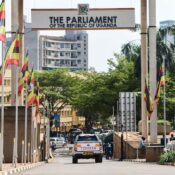
Bulgarians are still split on adopting the euro even though the country was approved to join the single currency
Bulgaria’s decision to adopt the euro has sparked a new national debate, and people are still very split over the move.
Bulgaria was given permission by the European Commission to accept the euro. This has caused a range of reactions across the country, showing that people are both optimistic about the economy and distrustful of institutions.
Igor Ruge, who runs a hotel in Bansko, a ski town in the south, was happy to hear the news on Wednesday. He said it could bring in more foreign guests and investment, which would help the EU’s poorest member state.
“It will be much easier for everyone in the euro zone to understand our value… and to understand that Bulgaria is one of the best places to go on vacation in the winter and the summer,” said Ruge, who runs two hotels in the area.
Bulgaria became a member of the EU in 2007. On January 1, 2026, it will become the 21st country to use the euro. The change should make trade easier and give Bulgaria a say on the Governing Council of the European Central Bank.
But, even though economic gains are expected, public doubt is still high. People are still against it because they are worried about possible price increases, graft, and weak government.
A Eurobarometer study released last month found that 50% of Bulgarians did not want to join the common currency. This is up from 46% in November.
A senior research fellow at Bulgaria’s Institute for Market Economics, Petar Ganev, said, “When you don’t trust the institutions in the country, it is much harder to make any transition. Especially when it comes to joining the euro.”
Over the past four years, Bulgaria has been in a long-lasting political crisis, with too many early elections and unstable alliances. This has made people even less trusting and made it harder to adopt the euro.
In response to the worries, the government promised to keep a close eye on prices during the changeover to make sure they didn’t go up for no reason.
At a news conference, Finance Minister Temenuzhka Petkova said, “It is important to make sure that pricing is constantly monitored so that Bulgarians and businesses can rest assured that no unjustified price increases will be allowed during this period.”
Ministries were glad that the Commission’s approval marked the end of a ten-year process and said that the government would keep working to earn the public’s trust before the currency change.
All Categories
Recent Posts
Tags
+13162306000
zoneyetu@yahoo.com



